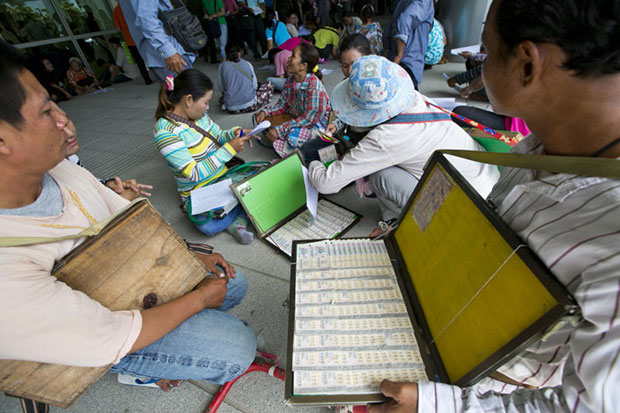
Residents from 10 provinces are seeking to delay amendment of the state Lottery Act, calling on the government to curb the country’s gambling addiction while using more of the proceeds to develop the country.
During hearings held in from April 5 to May 10 in Bangkok, Chiang Mai, Chon Buri, Kalasin, Kanchanaburi, Phetchabun, Sing Buri, Songkhla, Trang, and Ubon Ratchathani, public advocacy groups raised numerous objections to the rewrite of the 1974 Lottery Act, which the cabinet approved in March and is awaiting passage by the assembly.
Prasarn Praditsophon, representing advocacy groups in the 10 provinces, said the majority of participants in the hearings disagreed with the decision to increase the number of lottery tickets, as it would add to gambling problems in society. They also uniformly opposed the plan to begin selling tickets in convenience stores.
Activists also called for the jackpot prize to be eliminated and split into smaller payouts to increase the odds of winning.
In order to solve overpricing, the government should cut out middlemen from the ticket-distribution system and directly allocate tickets to retail dealers, residents testified. And those dealers should receive an "appropriate" portion of the profits, advocates said, to help them make end meet.
At nearly every hearing, however, public comments focused on kicking the country's gambling habit.
The government, witnesses said, should pursue every avenue to prevent youths from participating in gambling. Provincial representatives also called for Government Lottery Office revenues to be redirected from the central fund to a new programme to help people quit gambling.
Activists also want the government to allocate lottery revenue to local authorities to spend on strengthening communities.
Hearing testimony also covered the structure of the GLO itself, with advocates demanding the lottery office's board be filled by members with no conflicts of interest and representatives from the general public. A mechanism should be created to balance the power of the GLO's board to promote good governance, they said.
Mr Prasarn said the hearings in the 10 provinces clearly showed the public wanted enactment of the revised law to be delayed so that the public could be fully informed and participate in its drafting.
Vichien Tansirikongkhon, a lecturer at Burapha University's Faculty of Political Science and Law, said the government should retract the bill for improvement because it not address the GLO's management structure and, in fact, increased the power of the board to easily institute new types of lottery games.
The bill, he said, also does not contain a clause setting up a fund targeting social problems arising from gambling, as mandated by the National Council for Peace and Order.